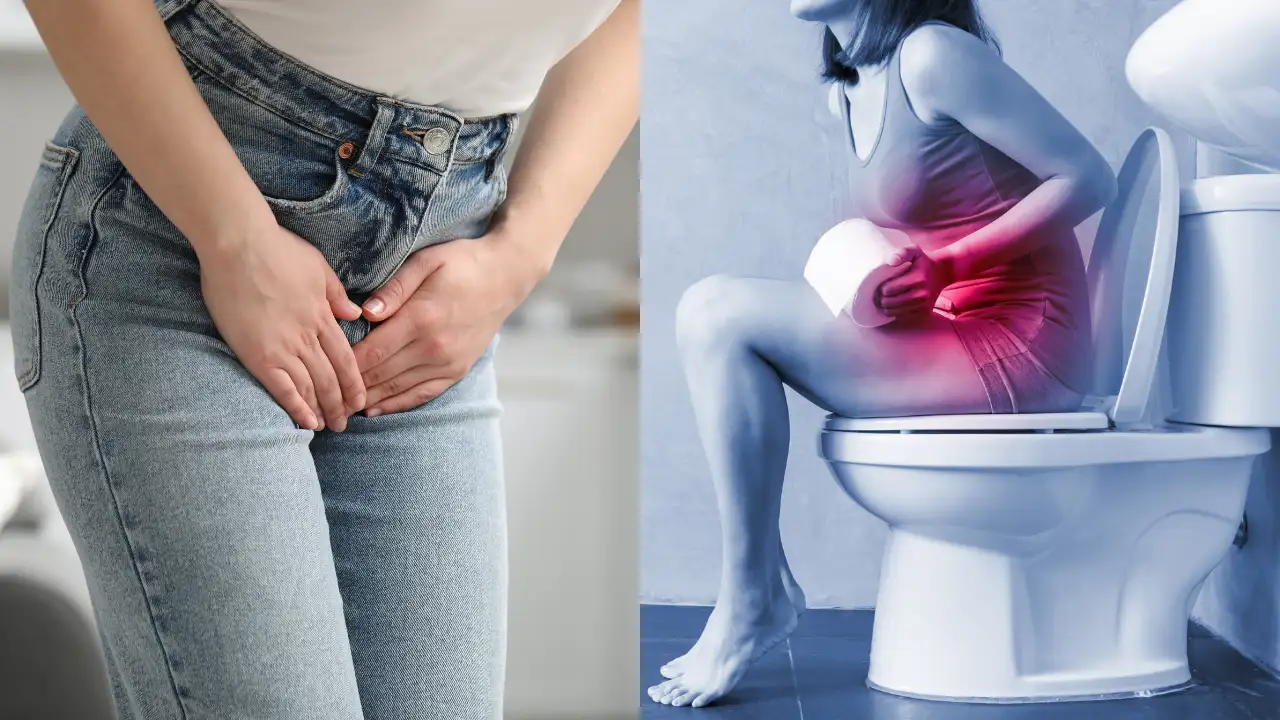Constipation is a common occurrence, and most of us may have experienced it at some point in time. While the condition can be taken care of by eating the right foods with high fibre content and simple lifestyle modifications, chronic constipation can be a risk factor for urinary tract infections (UTIs). Weird connection, right? Well, to break it down further, we speak with an expert, who shares how the conditions are related, how to recognise the signs, and more.
How Are Constipation and UTIs Related?
Constipation occurs when stool cannot pass through the colon efficiently, leading to less frequent or difficult bowel movements. “Stool buildup may exert pressure on the bladder and urinary tract, causing complications,” says Dr. Prashant Jain, Associate Director of Urology, PSRI Hospital, New Delhi.
He adds, “When the colon is full, it compresses the bladder, reducing its capacity to hold urine. This results in incomplete bladder emptying during urination. When urine remains in the bladder for too long, it provides an ideal environment for bacterial growth, increasing the risk of a urinary tract infection (UTI).”
Additionally, constipation can strain the pelvic floor muscles, which support both the bowel and bladder. Over time, Dr. Jain says, this strain may hinder complete bladder emptying, encouraging bacterial multiplication. “Bacteria from the colon are also brought closer to the urinary tract, facilitating their movement into the bladder. This significantly raises the likelihood of infection,” he explains.
Recognising the Signs
UTIs often manifest as burning during urination, frequent urination urges, cloudy or strong-smelling urine, and abdominal discomfort. “Constipation symptoms, on the other hand, include infrequent bowel movements, hard stools, and a feeling of incomplete evacuation. Experiencing symptoms of both may indicate a connection,” he says.
Preventive Lifestyle Changes
Simple lifestyle changes can improve both bowel and bladder health, reducing the risks of constipation and UTIs:
Hydration: Drinking adequate water softens stool, making it easier to pass. This also flushes the bladder, minimising bacterial growth.
Fibre-Rich Diet: Consuming fruits, vegetables, whole grains, and legumes facilitates regular bowel movements. Fibre acts as a broom, sweeping waste from the digestive system.
Good Bathroom Habits: Avoid retaining urine for too long and ensure the bladder is completely emptied during urination. Avoid straining during bowel movements to protect pelvic floor muscles.
Hygiene Practices: Always wipe from front to back after using the bathroom to minimise bacteria transfer from the rectum to the urinary tract.
Regular Exercise: Physical activities like walking stimulate bowel movements and enhance overall digestive health.
Consulting a Specialist
If constipation or UTIs occur frequently, consult a healthcare provider to identify underlying causes and explore treatment options.
Small lifestyle changes can have a significant impact on overall health. If you experience recurrent UTIs, consult a urologist for guidance. Your bladder and bowel will thank you!
Get Latest News Live on Times Now along with Breaking News and Top Headlines from Health and around the world.
